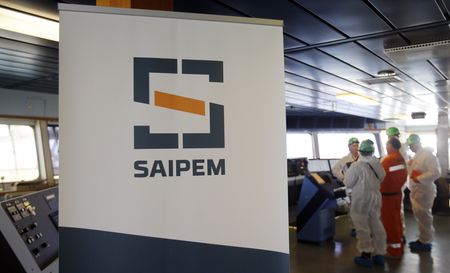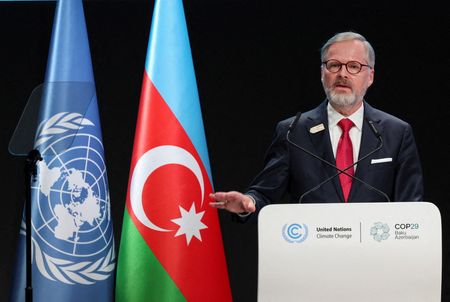By Jonathan Cable
LONDON (Reuters) -European business growth has stalled this month, surveys showed on Wednesday, with erratic U.S. trade policy appearing to take a heavy toll on sentiment – though not yet on output itself.
Activity in the euro zone’s and Britain’s dominant services industries contracted and the prolonged downturns they have seen in manufacturing continued, even deepening in the latter’s case.
Hamburg Commercial Bank’s (HCOB) preliminary composite euro zone Purchasing Managers’ Index, compiled by S&P Global, dropped to 50.1 this month from March’s 50.9. It was barely above the 50 mark separating growth from contraction and fell short of the median estimate for 50.3 in a Reuters poll.
“The recent increases in U.S. tariffs and associated market fallout have caused measures of economic sentiment to plummet this month,” said Jack Allen-Reynolds at Capital Economics.
A PMI covering euro zone services tumbled to 49.7 from 51.0, missing the poll estimate for a more modest decline to 50.5.
“The service sector has turned into a bit of a party pooper,” said Cyrus de la Rubia, chief economist at HCOB.
“Activity has shrunk instead of growing, which it had been doing almost continuously since February 2024. This has pushed the whole economy into stagnation territory.”
In Germany, Europe’s largest economy, the private sector contracted this month, hurt by service sector woes and trade-related uncertainty while in France activity contracted at a sharper rate, driven by a steep decline in services.
British companies – outside the European Union – have buckled under the strain of an escalating global trade war that threatens to tip the economy into a new downturn, their survey showed.
SERVICES SLUMP
Optimism among services firms in the common currency area plummeted with the business outlook index falling to 53.1 from 57.8, the lowest since mid-2020 when the COVID-19 pandemic was tightening its grip on the world.
Consumer confidence also fell this month, the European Commission said on Tuesday.
Manufacturing activity, in decline for nearly three years, saw some signs of improvement in the euro zone. The sector’s PMI rose to a 27-month high of 48.7 from 48.6, confounding expectations in the Reuters poll for a decline to 47.5.
An index measuring output, which feeds into the composite PMI, jumped to 51.2 from 50.5, its highest in almost three years.
“April’s euro zone flash PMIs suggest that the immediate damage to production from U.S. trade policy has been limited so far. But firms reported some front-loading of orders, so output might take a bigger hit in the coming months,” said Capital Economics’ Allen-Reynolds.
Britain’s manufacturing sector, already struggling, fared even worse in April as its PMI fell to 44.0 from 44.9, marking a 20-month low.
Firms have suffered from uncertainty as U.S. President Donald Trump flip-flops on his tariff policy.
But some of the activity was from factories completing past orders. The backlogs of work index dropped to a three-month low of 46.8 from 47.7.
As overall demand fell again, firms returned to reducing headcount. The composite employment index dipped to 49.9 after being just above breakeven at 50.4 in March.
(Reporting by Jonathan Cable; Editing by Hugh Lawson)











